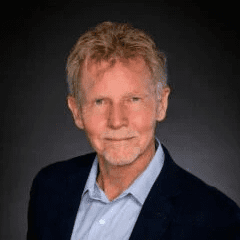K. Anders Ericsson’s work on deliberate practice and client feedback explains studies showing that most of us grow continually in confidence over the course of our careers despite little or no improvement in our actual rate of success.
Contrary to conventional wisdom, the culprit behind such mistaken self-assessment isn’t incompetence, but rather proficiency. Within weeks and months of first starting out, noticeable mistakes in everyday professional activities become increasingly rare, making intentional modifications seem irrelevant, increasingly difficult, and costly in terms of time and resources. Add to this the custom in our profession of conflating success with a particular method or technique, and the door to greatness for many therapists is slammed shut early on.
During the last few decades, more than 10,000 “how-to” books on psychotherapy have been published, and the number of treatment approaches has mushroomed. Based on this information alone, one would be hard pressed not to believe that real progress has been made by the field. More than ever before, we know what works for whom. Or do we?
In comparing today’s success rates with those of decades past, we find that no measurable improvement in the therapeutic effectiveness of psychotherapy has occurred in the last 30 years.
The time has come to confront the unpleasant truth: Our tried-and-true strategies for improving our therapeutic effectiveness have failed. Instead of advancing in the field, we’ve stagnated, mistaking our feverish peddling on a stationary bike for progress in the Tour de Therapy.
This isn’t to say that therapy is ineffective. Quite the contrary, the data are clear and unequivocal: Psychotherapy works. The heart of the issue, however, is how we can learn from our experiences and improve our therapeutic effectiveness.
Psychotherapists aren’t alone in the struggle to increase expertise. Using the treatment of cystic fibrosis (CF) as an example, science writer Atul Gawande showed how the same processes undermining excellence in psychotherapy play out in medicine.
Since 1964, medical researchers have been tracking the outcomes of patients with CF. As is the case with psychotherapy, the evidence indicates that standard CF treatment works. The real story isn’t that patients with CF live longer when treated, but that, as with psychotherapy, treatment success rates vary significantly.
It’s a small comfort to know that our counterparts in medicine stumble and fall in the pursuit of excellence just as much as we “soft-headed” psychotherapists do. But Gawande’s article provides much more than an opportunity to commiserate. It confirms what our own research revealed to be the essential first step in improving outcomes: knowing your baseline performance. To get where you want to go, you first have to know where you are.
Most practicing psychotherapists have no hard data on their therapeutic effectiveness with clients. Fewer still have any idea how their outcomes compare to those of other clinicians or to national norms. By discovering this information, we can push beyond our current standard of reliable performance and, in time, see our outcomes improve markedly.
Scott Miller
Scott D. Miller, PhD, is the founder of the International Center for Clinical Excellence an international consortium of clinicians, researchers, and educators dedicated to promoting excellence in behavioral health services. Dr. Miller conducts workshops and training in the United States and abroad, helping hundreds of agencies and organizations, both public and private, to achieve superior results. He is one of a handful of “invited faculty” whose work, thinking, and research is featured at the prestigious “Evolution of Psychotherapy Conference.” His humorous and engaging presentation style and command of the research literature consistently inspires practitioners, administrators, and policy makers to make effective changes in service delivery. Learn more at scottdmiller.com.
Mark Hubble
Mark Hubble, PhD, is a cofounder of the Institute for the Study of Therapeutic Change. He has co-authored and edited numerous professional articles and books, including The Heart and Soul of Change: What Works in Therapy; Escape from Babel; Psychotherapy with Impossible Cases; and The Heroic Client. Recently, Hubble co-released a self-help book, Staying on Top and Keeping the Sand Out of Your Pants: A Surfer’s Guide to the Good Life.
Barry L. Duncan
Barry L. Duncan, PsyD, is a therapist, researcher, trainer, and the CEO of Better Outcomes Now, the web and mobile application for PCOMS. He’s the author of 15 books and over 150 publications on PCOMS, the common factors in effective therapy, and client privilege.















